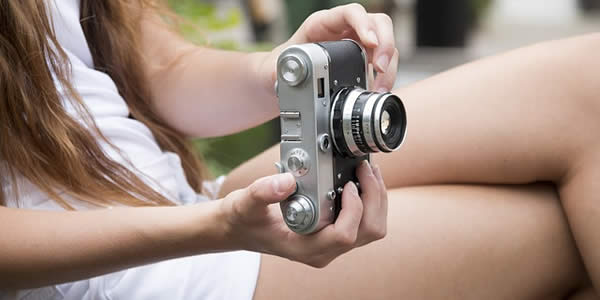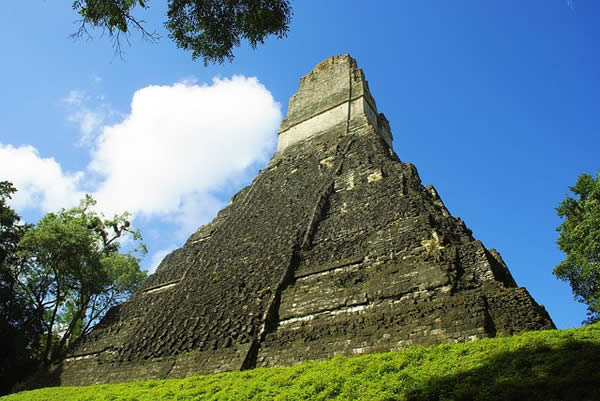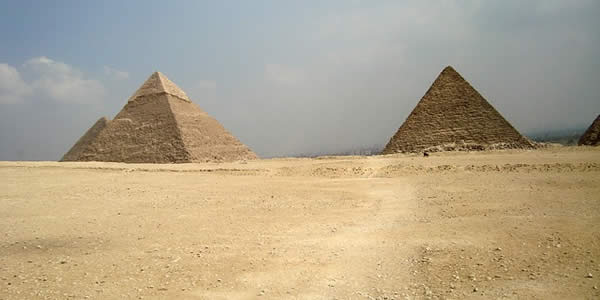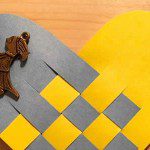There was a beautiful white woman who traveled the world. She was wealthy and educated. She sought world travel to improve on her wealth and on her education. As she traveled, she collected things.

During one of her very first journeys, she went to Mexico and collected a beautiful Dia de Muertos sugar skull. Brightly painted and cautiously made by hands who revered the sacred day and the ancestors it celebrated. She was drawn to the new insight it suggested regarding death and honoring the ancestors. Sometimes, back home, she would take the skull out and taste the sweet sugar on the bottom, she had always had a sugar addiction.
Further South in the southern Americas, she had stood in a sacred Mayan Temple and uncovered a treasure quite back accident. Walking through the ruins she had seen what looked like a weird ball crammed into a nook and cranny. Prying it out, she discovered it was a ball which appeared to have been made with twine and natural leathers. She recalled something about ancient games played with balls in this arena and for a moment imagined that the power of those players rolled through her. Tucking the ball in her backpack, she took it home. It didn’t look like much of anything so no one ever asked why she had this nasty object in her luggage. At home, she often held it in her hands to remember the feeling of power that flowed through the ancient temples of the Maya and it would comfort her for a time.

In Africa, she shunned the many tourists markets to travel to smaller villages and meet with wise men and women. She learned their ways and came to embrace their late night rituals and drumming. Once, while the women of the village prepared for such a night, she noticed a beautiful necklace and upon noticing, the women in the village let her wear the sacred object for the night. That night, the heavens opened up and all that was sacred seemed possible to her. She had never felt more fully woman in her life. She danced and felt at one with god and every spirit that ever was. The next day the women came for the necklace and she reluctantly gave it over. She had had the experience so she felt like the necklace was hers now. She had given it power, after all. A few days later, in the middle of the night, she stole away, after retrieving her necklace. She often wore it to remember the feeling of power that flowed that night in the desert with the drums and it was never really the same.
In the Middle East, she fortified herself against terrorist and war, so she could sneak into the sacred temples of the ancient and forgotten realms. Not thinking of how the people of these war ravaged lands would feel, she found a small clay object elaborately decorated with mythical winged creators who hurled fire from the mouth. It looked like a miniature container for water and went well with the bizarre female figure dressed in feathers that must have been colorful in ancient times. Small enough to fit in her pocket, she took them home with her. She often took them out to remember the feeling of desolation in that ancient preserved place now riddled with violence.

In Egypt, she went on a special tour inside the pyramids. She was entranced by the Egyptian hieroglyphics trying to work out for herself, without really any knowledge of them, what they could have possible meant. This preoccupation lead to her being separated from her group. Despite being told not to, she reached up to stroke the faded colors and a portion of the wall fell off in her hand. Such a small thing that left a gaping wound on the wall. Fearful of being caught and shamed, she tucked away the piece in her pocket and forgot about it. Later, back home, she found it again, a little worse for the travel but still recognizable. She kept it and would often look at it to remember how close she had come from being caught and shamed.
In Greece, she was walking through ancient ruins, near where new excavation by archeologists was happening, when she watched a worker carrying a box of dirt from the excavation. Weary and hot, he dropped his box and carelessly scooped up the dirt, leaving a substantial portion behind. Curious, she went over to dig in the dirt as she had as a child. In this dirt she felt something cool and hard and brushing away the debris she uncovered a small coin with Greek writing on it and the Owl of Athena over that writing. On the opposite side, the striking figure of a Greek warrior was emblazoned upon it. Again fearful of being accused of theft and unsure how to go about notifying someone, she tucked the piece in her pocket and got the hell out of Greece as fast as possible. She placed it in a safe place in her home and then tried to forget about the whole experience.

She traveled to Scotland’s many standing stones and scared places. Here she felt closer to her ancestors than ever because she knew her ancestors descended into the Americas from this region. While there, alone, exploring she found an ancient stone that had so many sides, it had obviously been handmade. She carefully used her coat to protect it and wrapped it up. Then getting in her rental she went to the national museum in Scotland where a curator explained that these sacred objects were likely created by ancient spiritual men or women but there was no knowledge as to why. Her stone, he said in a hushed reverent whisper, had twenty sides and could very well prove that the Ancient Scots were the first to discover the Platonic solids made famous by the Greek, Plato. The object stayed with the museum and caused much academic research and the stone became known by her name. She went home filled with a sense of fulfillment. She had a purpose and she had fulfilled it.
Back in the United States, she longed to feel again, not just remember her experiences and was drawn to a Pow Wow. Here she became friendly with the locals and eventually was invited to join them at a smaller gathering. Seeing their plight, and being wealthy, she decided to build a few homes for the elders of the tribes with solar power and rain catching water barrels. The tribe was so grateful and knowing how much she loved to dance at the pow wows, gave her her own dancing regalia to wear. Beautifully made and endlessly wonderful to wear, she was nearly never seen without it on.
Upon her death bed, her regalia now worn and tired with holes and rips, all of her various artifacts set upon the table near her where she could reach out and touch them, even the stolen Greek coin. She would touch them in turn and try to remember something powerful and spiritual about each place she had visited, but was unable to fully recapture what she had once felt so clearly.
She touched the Dia de Muertos skull and once again turned it over to taste the bottom. Noticing that the small spot she had always licked was a large hole now that ran straight through the skull. Wondering about this the skull disintegrated fully in her hands. Dismayed, she didn’t notice the wind that whipped around her and suddenly found herself looking at her own parents, grandparents, her great aunts, and aunts and uncles, all long departed standing near her bed.
“Why didn’t you leave it on a grave?” they asked in unison. “We have been starving and waiting for you to gift us with this sacred food, but you kept it and we have starved.”
Shocked she watched as her ancestors turned into dust and disintegrated before her. Thoroughly disturbed, she reached for her Mayan ball trying to find the comfort it had always brought her.
Xbalanque and Hunahpu suddenly appear before us.
“THERE IS OUR BALL!” Xabanque cried out. “Finally we can go and challenge those underworld dogs to a game!”
Hunahpu grinned, “We will treat them as we treated our half brothers and the awful Vucub-Caquix!”
Xbalanque grabbed the ancient ball and disappeared from sight leaving the woman confused and bereft.
Now a little irritated that her treasures were disappearing she grabbed the African necklace to wear, when a beautiful, large black woman appeared with necklaces and bracelets adorning her and a pitcher of water in her hand.
“Why do you have my necklace?” Yemaya asked “You are not pregnant and in need of birthing.”
The woman was stunned. Who was this woman and was she going to take another of her precious experiences away from her?
Yemaya stepped forward and took the necklace. “This necklace has been worn on the woman of the tribe for centuries used to bring forth their power as a healer and woman. Helping them choose men to mate with and to get through the pains of labor. Why is it separated from them now?”
Stuck dumb with silence she had a fleeting thought of how much that artifact must have been worth, when the large black woman grimaced as if she could hear her thoughts.
“This was not meant for you,” she said firmly and departed with the feeling of waves crashing through the room.
Thoroughly upset now and a bit thirsty, she reached for the small likeness of a Middle Eastern jug and looked over at the statue of a woman. She rarely touched or held it, but now in her struggle to maintain life until she felt spiritual fulfillment, she took the small figure into her hands and slowly stroked it feeling overwhelmed by the inevitableness of death.
Suddenly, a gentle hand was laid upon her. Looking up there was a regal woman standing there holding a book. She smiled uncertainly then moved back and opened her book. She started carefully and thoroughly going through the book page by ancient page.
“Hummmm,” she said nervously, “You do not seem to be in here.”
Looking the woman over and taking in her strange dress and appearance, the goddess approached and gently lifted the small vessel from her.
“Why, this is what is buried with my people, filled with sweet oils as a tribute to me,” Husbishag said.
Smiling broadly she plucked the image of herself out of the woman’s hands, “See her is my likeness so that I know the gift was meant for me. But you are not dead and you are not in my book. Who are you?”
“Who are you?” the woman said reaching for the small vessel to take it back.
“On no!” Husbishag declared, “These are not for the living! They are for the dead. You are not dead! I will take these to those who are dead where it is better served.”
With that the book opened and swallowed Husbishag, the vessel and the statue then the book swallowed itself until there was nothing left.
Sighing heavily, she picked up the hieroglyphics from Egypt. Without much surprise now, she watched at Anubis materialized in her room.
“What is this, you have a piece of the sacred chambers of burial from my homeland,” he says.
“It was an accident,” she starts, “I didn’t mean to and I was upset about it so I just put in my pocket and forgot it.”
“Forgot it? Do you forget your ancestors?”
Struck by that statement, she stammers, “Well, um, I mean, actually…”
Anubis fed up with her stammering, reaches over and takes the piece of the pyramid wall holding it with reverence. In his hands it restores to new condition and suddenly she can see the entire wall as if it was right there in her bedroom. The glory of it shimmers and she wishes she had taken more time to learn the ancient language of the hieroglyphs so that she would know what Anubis read.
Just as she felt she might begin to understand something of what she was seeing, Anubis sneered at her and disappeared taking the unearthly vision with him.
Tired, she reached for the cursed Greek coin. Other than the dance regalia she wore, her only artifact of her many journeys. Holding it, she watched and waited as her room dissolved and a warrior dressed in ancient Greek gear appears. In his hand is a coin just like her and behind her a man in a boat waits patiently, taking coins from others while they clamber into his boat. All those boarding are dressed in modern day appearances only the warrior seems out of place.
“Why did you take my coin?” he says. “Did I not fight valiantly enough? Was I not honorable? Did you find some fault in how I worshipped the gods? Has Athens no respect for me now?”
Sighing, she lifted her hand to place the coin in the warrior’s palm. Feeling some measure of relief, she watched him pay the toll, board the boat and be slowly taken to some final rest she could not even imagine. As the boat drifted further away so did the vision.
Alone now, she felt there was no other to come to her and that is when A’Akuluujjusi came.
“You are not one of mine, but you wear a disgracefully kept dancing regalia! Who are you?”
“Who are you?” she said, “This regalia is mine. It was a gift for my great deeds to the tribe.” In this one thing, the woman seemed really certain. This was not a stolen thing it was a gifted thing. She had earned the tribes trust and thanks and this regalia had been her due.
“GIFT?” A’Akuluujjusi cried loudly, “This is how you treat GIFTS from your friends? Did you dance in this to honor the spirits of the land and sky? Did you dance in it to pay tribute to the ancestors of the tribe? NO! You wore it every day as a symbol of your pride and vanity. You are not worthy!”
Suddenly, she was naked and alone in her bed.
Really, it was just too much. She began to cry for all that she had lost. Here she was dying and all these beings had stolen her spiritual joy.
“Oh please!” Cerridwen said, her bubbling cauldron at her side, she continued to stir, “Were those moments not something in your heart that changed you?”
“Cerridwen! I am dying. What should I do?”
“You are not dying,” Cerridwen barked, “You are evolving, which many people say is like death,” she says speculatively.
“Evolving from what into what?”
“From a nitwit into someone enlightened,” Cerridwen began sitting on the side of the bed, the cauldron now seeming to stir itself.
“You traveled the world looking for spiritual connection and were honored to taste, sometimes literally, a small amount of what other culture’s spirituality is like. Sometimes you even immersed yourself in their daily living, but ultimately, the only place you really understood the significance of what you had discovered was among our people in the sacred places of Scotland. Everywhere else was an interest, one that could have led to the fuller understanding of the sameness of spirituality around the world, but one that you abused instead.”
The woman looked down to find she was dressed in jeans, a t-shirt and tennis shoes. Around her neck was a gold pentacle and small cauldron on a length of gold chain.
“But when I dance in the regalia I feel so powerful and connected,” she whispers to Cerridwen.
“Then dance when the opportunity arises and try to connect again with A’Akuluujjusi bringing to her through your dance your humble apology. In fact honor all the gods and goddesses who have blessed you this Samhein Eve. Leave oil for Husbishag. Give two coins to the coffin of the next person you love who passes. Offer Anubis obsidian or hematite for your egregious oversight in his sacred domain. Leave out corn for Xbalanque and Hunahpu to strengthen them in their quests. Make a sacred necklace and give it to a pregnant woman asking Yemaya for forgiveness of your own theft. For Goddesses sakes, leave sugar skulls where your ancestors are buried on All Hallows Night. It isn’t that you were attracted and moved by what you have seen in your travels that lead you astray. It is that you have tried to claim they are your own. The spiritual mysteries of any culture belong to no one but the gods and goddesses who tend them.”
Cerridwen stood with a sigh taking up her spoon and stirring the cauldron once more.
“This is a drop from my cauldron to you,” she said, “What will you do with it?”
Author’s Note: I did do research for this piece and will readily say that I haven’t worked with all of these gods or goddesses. It is my attempt to give a story that explains how cultural appropriation happens and why it can be disrespectful. I may get some of the indigenous facts wrong. I believe that only strengthens the point of the story. If in reading this story you have factual corrections about the cultures, gods, and goddesses I reference, please email me and I will adjust the story accordingly. (Lydia @ lydiamcrabtree(dot)com)
Ultimately the point is as a white southern woman how can I have the same connection with some of the deities in this story when I have not taken a large amount of time to study them, their culture, language and meaning? As a mono polytheist I do worship all gods and goddesses as manifestations of the Divine source. However, I may choose to work with gods and goddesses for a time, I do so with the knowledge that I am never as adept as a true devotee to that god or goddess and that if it is outside of my culture, there is much in the nuances of that picture of divinity that I may miss.
I suggest that this story is good to read to children of all ages. If your child is younger than 12, read them the story and ask simple questions about what the story could mean. You could also ask which gods or goddesses in the story they liked the best. The answer may help you teach your child more about a specific pantheon.
For children ages 12 to 18, use the story to open a dialogue around culture appropriation. Below are some definitions for your benefit and a set of questions that should lead to good discussion. You don’t have to ask all the questions, one or two that interest you is fine.
Cultural appropriation is a sociological concept which views the adoption or use of elements of one culture by members of a different culture as a largely negative phenomenon.
Marginalization transitive verb. : to relegate to an unimportant or powerless position within a society or group. — mar·gin·al·i·za·tion \ˌmärj-nə-lə-ˈzā-shən, ˌmär-jə-nəl-ə-\ noun.
Racism /ˈrāˌsizəm/ noun 1. the belief that all members of each race possess characteristics or abilities specific to that race, especially so as to distinguish it as inferior or superior to another race or races; prejudice, discrimination, or antagonism directed against someone of a different race based on the belief that one’s own race is superior.
Questions to discuss with pagan children around cultural appropriation. Best for children ages 12 to 18.
- Is paganism inherently a religion of cultural appropriation?
- Is cultural appropriation of American Indian or First Nations worse than cultural appropriation of the Norse or Celts?
- What does marginalization mean? How do we marginalize a person? A spiritual belief system? A culture? A race?
- How are marginalization and racism linked?
- How are cultural appropriation and racism linked?
- It is acceptable for a black person to consider themselves on the Nordic spiritual path?
- Is it acceptable for a white person to consider themselves on an African spiritual path?

Patheos Pagan on Facebook.

the Agora on Facebook
Birthing Hereditary Witchcraft is published occasionally on Agora. Subscribe via RSS or e-mail!
Please use the links to the right to keep on top of activities here on the Agora as well as across the entire Patheos Pagan channel.

















